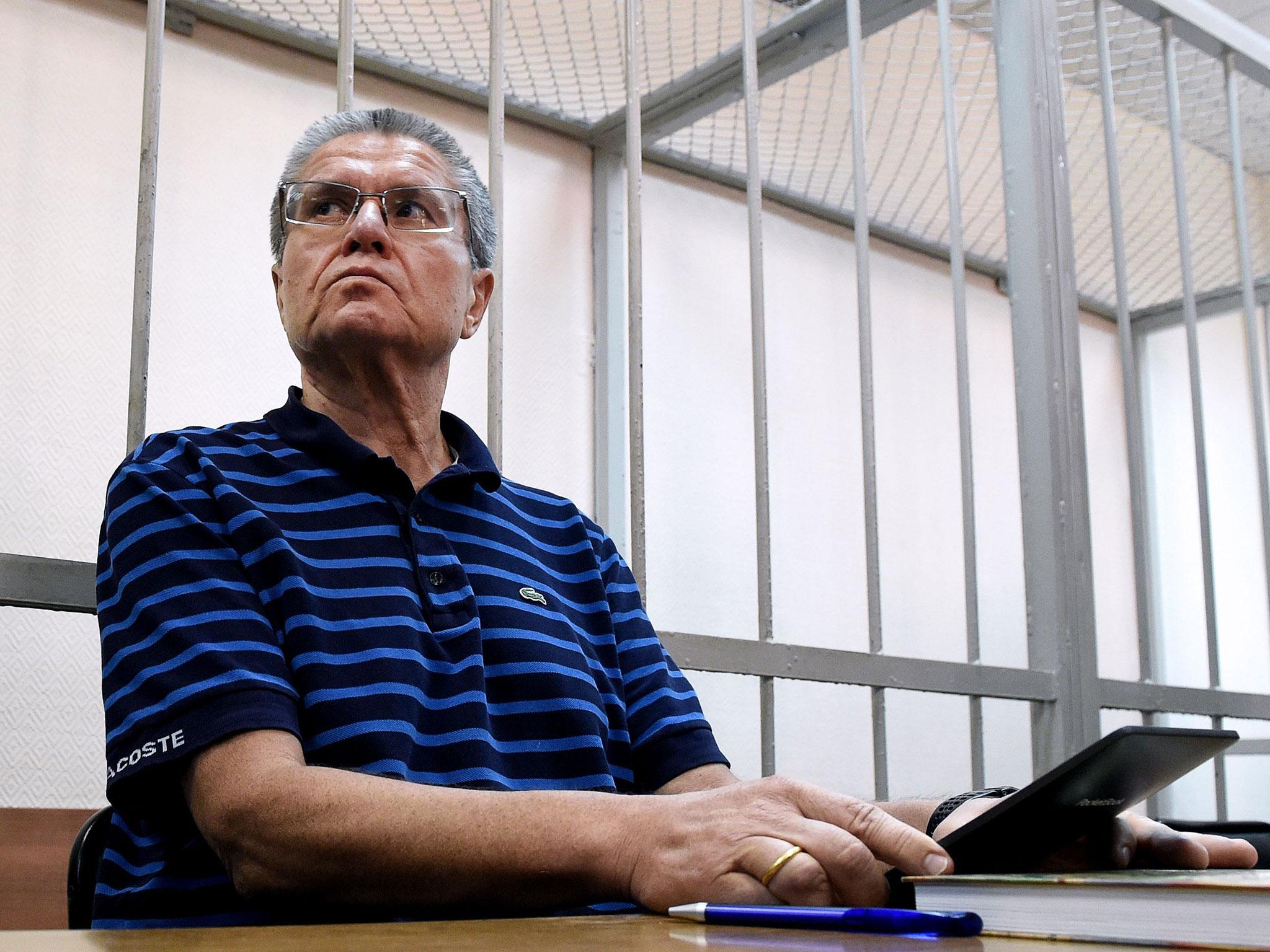Russian ex-minister Alexei Ulyukayev dismisses ‘absurd’ bribery allegation and rails at 10-year sentence request
‘Don’t ask for whom the bell tolls – it tolls for you,’ says former Cabinet minister, also quoting Socrates and Fidel Castro in defiant final speech

Your support helps us to tell the story
From reproductive rights to climate change to Big Tech, The Independent is on the ground when the story is developing. Whether it's investigating the financials of Elon Musk's pro-Trump PAC or producing our latest documentary, 'The A Word', which shines a light on the American women fighting for reproductive rights, we know how important it is to parse out the facts from the messaging.
At such a critical moment in US history, we need reporters on the ground. Your donation allows us to keep sending journalists to speak to both sides of the story.
The Independent is trusted by Americans across the entire political spectrum. And unlike many other quality news outlets, we choose not to lock Americans out of our reporting and analysis with paywalls. We believe quality journalism should be available to everyone, paid for by those who can afford it.
Your support makes all the difference.A former Russian cabinet minister today delivered his final word in a bribery trial that has electrified the country and split its ruling elite. Alexei Ulyukayev, his voice between angry and trembling, used his 12-minute speech to ask for forgiveness.
He was guilty – he said – but not of the “absurd” allegation of accepting a $2 million bribe: “I’m guilty of doing too little for my country. I made too many compromises, was a hypocrite, and was too fond of receiving, and giving, presents. Forgive me.”
Until a sting operation late in the evening of 15 November 2016, Mr Ulyukayev, 61, held the important portfolio of economic development. Overnight, he became the first serving minister to be arrested since Joseph Stalin’s henchman Lavrenty Beria in 1953. Prosecutors have asked for a sentence of 10 years hard labour.
Mr Ulyukayev insisted he was innocent of the crimes of which he was accused. The state prosecutor’s case was an inconsistent, “black” affair, “strung together with a bit of white thread”. The trial had become somewhat akin to a public circus, “where an aged gladiator with a cardboard sword tries desperately tries to wave off very real threats”.
The public would be watching to see what kind of verdict would be delivered, he said.
During his short monologue, the former minister cited Socrates and Fidel Castro, and referred to the dark days of Soviet terror. “Andrey Vyshinsky has got nothing on this,” he said, in reference to the infamous state prosecutor of Stalin’s show trials. “Don’t ask for whom the bell tolls – it tolls for you.”
On Monday, prosecutors claimed Mr Ulyukayev’s guilt had been “proven completely”. They surprised many with harsh demands for a sentence of 10 years of strict labour colony and a fine of 500m roubles (£6.3m).
Mr Ulyukayev said that at his age, such a term was the “equivalent of a death sentence”.
The trial, now in its 21st session, has pitted the former economics minister against Igor Sechin, the all-powerful head of state oil company Rosneft, and a close Putin confidante. As the man who organised the sting operation, Mr Sechin was a key witness in the trial. He was summoned four times by the defence. On three occasions, his staff refused to accept the summons; on a fourth, Mr Sechin’s press secretary said he was “too busy” and would remain so for the foreseeable future.
In court, Mr Ulyukayev said the Rosneft chief was a “master of dubious deeds”, and suggested his failure to appear as a witness was because he had “nothing to say”. If anyone should be facing trial it was Mr Sechin, he said – “for giving false evidence”.
Such open confrontation is highly unusual for the Russian elite, and highlights serious divisions within the Kremlin. While President Putin was said to be aware of Mr Sechin’s sting operation, it is not clear if he played any role in devising it. Some analysts have suggested that the Rosneft chief may have overplayed his hand. On several occasions, evidence showing Mr Sechin in a less than favourable light has since been mysteriously leaked to the media.
Last year, Prime Minister Dmitry Medvedev described his minister’s arrest as “a difficult event … beyond my comprehension”. Anatoly Chubais, the influential former deputy prime minister, also rubbished the prosecution claims. “They are saying Ulukayev was threatening Rosneft,” he wrote on Facebook. “Have I suddenly stopped understanding something about this world?”
The direction and severity of any verdict will say much about Mr Putin’s real position in the dispute, as well as providing clues about Mr Sechin’s current standing.
The verdict is expected at 10am on 15 December.
Join our commenting forum
Join thought-provoking conversations, follow other Independent readers and see their replies
Comments